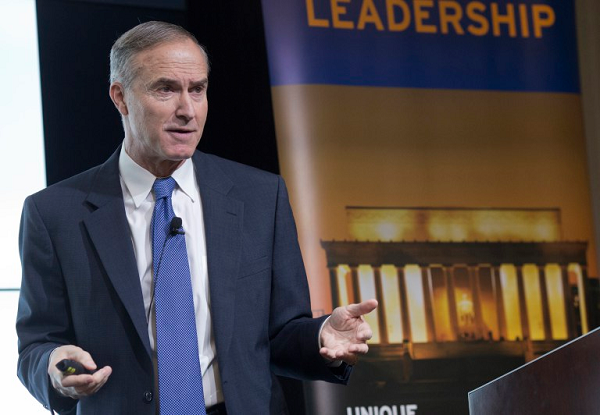David Huntoon on Brookings Executive Education
Training for certainty, educating for uncertainty.
The military maxim sums up Brookings Executive Education’s (BEE’s) value proposition, according to BEE’s Executive in Residence David Huntoon Jr. The retired Army lieutenant general assumed the role in May 2017.
BEE covers the core competencies required for the Senior Executive Service. But, it also prepares public servants to solve problems during global crises, geopolitical conflicts and periods of rapid change — or what the military calls VUCA (volatility, uncertainty, complexity and ambiguity) conditions.
“Brookings Executive Education gets VUCA,” Huntoon says.
Government often focuses on “current operations and the here-and-now. At BEE, public-sector leaders learn how to step back and think strategically about difficult challenges.”
Huntoon spent 40 years in the U.S. Army, serving as superintendent of the U.S. Military Academy at West Point; director of Army staff; commandant of the U.S. Army War College; and the Army’s director of strategy, plans and policy. Huntoon was deployed as a senior war plans officer with the XVIII Airborne Corps at Fort Bragg in Operation Just Cause, Operation Desert Shield and Operation Desert Storm. He also commanded an infantry battalion in Korea and the 3rd U.S. Infantry Regiment in Washington, D.C.
Huntoon’s academic experience is equally impressive.
He received his Bachelor of Science degree in engineering from West Point, Master of Arts degree in political science and government from Georgetown University, and a Master of Military Arts and Sciences from the U.S. Army Command and General Staff College. In addition, he was a National Security Fellow at Stanford University.
“BEE has a wonderful palette of programs and classes. It has faculty capacity, with proximity to active decision makers and policymakers. Instructors are committed to values-based leadership. They understand the selfless purpose of the individuals who work in the public sector.”
